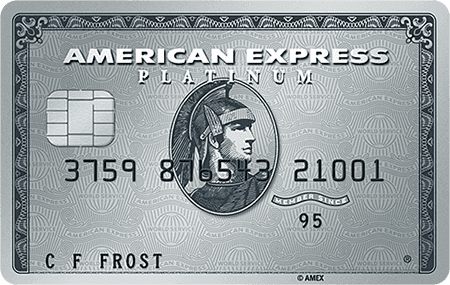- myFICO® Forums
- Bouncing Back from Credit Problems
- Rebuilding Your Credit
- Disputing resets the clock?
- Subscribe to RSS Feed
- Mark Topic as New
- Mark Topic as Read
- Float this Topic for Current User
- Bookmark
- Subscribe
- Mute
- Printer Friendly Page
Disputing resets the clock?
Is your credit card giving you the perks you want?
Browse credit cards from a variety of issuers to see if there's a better card for you.
- Mark as New
- Bookmark
- Subscribe
- Mute
- Subscribe to RSS Feed
- Permalink
- Report Inappropriate Content
Disputing resets the clock?
Also what is the statute of limitations in Pennsylvania?
- Mark as New
- Bookmark
- Subscribe
- Mute
- Subscribe to RSS Feed
- Permalink
- Report Inappropriate Content
Re: Disputing resets the clock?
@HighGoals wrote:
Does disputing an account reset the time on your credit report?
Also what is the statute of limitations in Pennsylvania?
No it doesnt reset the SOL, DOFD, or anything like that. Only thing that really would reset it is an agreement of payment (eg you made an payment arrangement, or promise of payment). The SOL in PA is 6 years for collection of debt (or breach of contract)
- Mark as New
- Bookmark
- Subscribe
- Mute
- Subscribe to RSS Feed
- Permalink
- Report Inappropriate Content
Re: Disputing resets the clock?
No, disputing will not reset the 7-year reporting period.
- Mark as New
- Bookmark
- Subscribe
- Mute
- Subscribe to RSS Feed
- Permalink
- Report Inappropriate Content
Re: Disputing resets the clock?
@silver_idle wrote:
@HighGoals wrote:
Does disputing an account reset the time on your credit report?
Also what is the statute of limitations in Pennsylvania?No it doesnt reset the SOL, DOFD, or anything like that. Only thing that really would reset it is an agreement of payment (eg you made an payment arrangement, or promise of payment). The SOL in PA is 6 years for collection of debt (or breach of contract)
The only way the date of first delinquency can be changed is if an account is brought back to a current status and then goes into default again. Once an account has been charged off, it cannot be brought back to a current status. Therefore, while an agreement to pay could reset the SOL for collection, it would not reset the 7-year reporting period.
- Mark as New
- Bookmark
- Subscribe
- Mute
- Subscribe to RSS Feed
- Permalink
- Report Inappropriate Content
Re: Disputing resets the clock?
@HighGoalsTheres 2 different things. SOL and DoFD. Certain actions can restart the debt statute of limitations on a dormant account. It's important to know this so you don't accidentally give new life to an old debt. You can restart the statute of limitations on a debt by acknowledging that you owe the debt, making a payment, entering a payment plan, making an agreement to pay, making a charge on the account, accepting a settlement offer. But each state have different laws. In PA. Creditors may attempt to seek a judgment against you for outstanding debts even after the statute of limitations has run out. Even if you are certain the statute of limitations has run its course on the debt, you must respond to the filing. Ignoring the lawsuit could result in a default judgment making the debt legally enforceable. So you need to make a timely payment/payments and not be late or you dont pay after agreeing to.
Nothing can legally restart the seven-year credit reporting clock — absolutely nothing. When a collection agency purchases a debt, they cannot re-age the account to restart the clock. You cannot restart the clock by making a payment either. In fact, any changing of the date of first delinquency, the date of default, or the purge from date on an account would be illegal.
- Mark as New
- Bookmark
- Subscribe
- Mute
- Subscribe to RSS Feed
- Permalink
- Report Inappropriate Content
Re: Disputing resets the clock?
I’m just wondering about the Capital one charge off that I disputed but is charged off. I know will come back verified. This is going to ruin my chance of getting a house.
- Mark as New
- Bookmark
- Subscribe
- Mute
- Subscribe to RSS Feed
- Permalink
- Report Inappropriate Content
Re: Disputing resets the clock?
Last App: 1/10/2023
Penfed Gold Visa Card
Currently rebuilding as of 04/11/2019.
Starting FICO 8 Scores:



Current FICO 8 scores:



- Mark as New
- Bookmark
- Subscribe
- Mute
- Subscribe to RSS Feed
- Permalink
- Report Inappropriate Content
Re: Disputing resets the clock?
The possible positive effect of disputing it is that they may not have the right documents to defend it, or for whatever reason, it could fall off. Sounds like a longshot in this case from how you worded it, but it's possible.
The possible negative effect of disputing it is that your credit report(s) may insert a "consumer statement" along the lines of "Consumer disputes" or may copy and paste in whatever your dispute said. Equifax, in particular, is known for leaving that hanging around on your report indefinitely, including after disputed items are removed.
It will not re-age accounts or anything else that affects your score, or at least, should not.



FICO Resilience Index: 64. Cards: 5/24, 2/12, 2/6. Accounts including loans: 8/24, 4/12, 3/6. Card CLs total $213,900, or $240,400 including the AU card. Cards (oldest to newest)













Authorized user / Corporate / Auto loans / Personal loan






- Mark as New
- Bookmark
- Subscribe
- Mute
- Subscribe to RSS Feed
- Permalink
- Report Inappropriate Content
Re: Disputing resets the clock?
@HighGoals wrote:
Thanks everyone.
I’m just wondering about the Capital one charge off that I disputed but is charged off. I know will come back verified. This is going to ruin my chance of getting a house.
If it havent been sold to a CA, you should contact them and look to pay or settle. I would say you could see if they could do PFD but to my knowledge they rarely do that, but regardless if youre looking to get a house its best to take care of it asap. If it been sold to a CA but it havent been reported yet, you should contact the CA (Capital One can provide that info for you, assuming you havent received a letter yet) and offer to pay for it not to report (some CA would allow you to pay prior to them reporting, thus not reporting at all for any paid accounts), or to provide an settlement offer. Once that taken care of you could try sending Capital One GW letters.
- Mark as New
- Bookmark
- Subscribe
- Mute
- Subscribe to RSS Feed
- Permalink
- Report Inappropriate Content